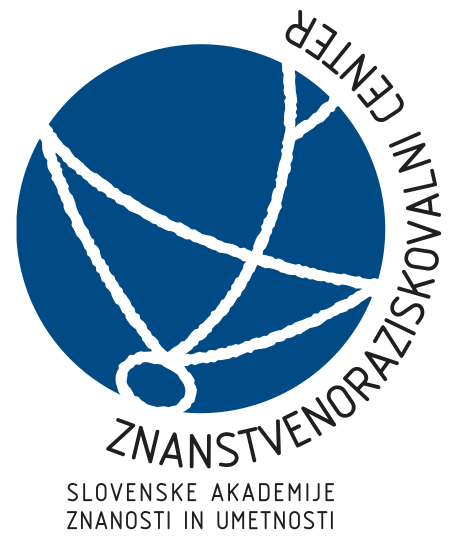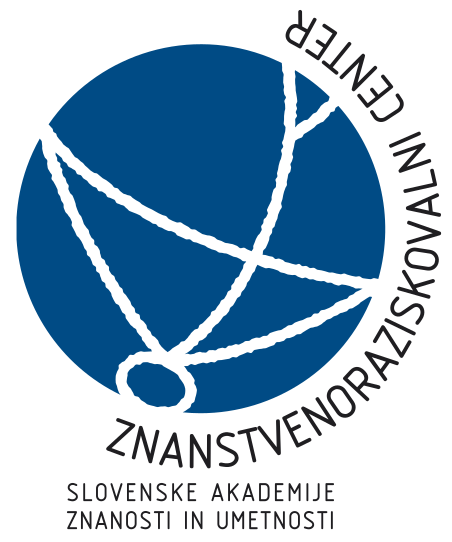Difference between revisions of "Institute of Ethnomusicology"
| Line 25: | Line 25: | ||
{{Teaser| | {{Teaser| | ||
| − | The [[Institute of Ethnomusicology]] (GNI) is the oldest institute within the [[Scientific Research Centre (ZRC SAZU), Slovene Academy of Science and Arts| Scientific Research Centre of the Slovene Academy of Sciences and Arts]]. Founded in [[established::1934]], initially as the Folklore Institute, it was affiliated to SAZU in 1972 as a section of the Institute of Slovene | + | The [[Institute of Ethnomusicology]] (GNI) is the oldest institute within the [[Scientific Research Centre (ZRC SAZU), Slovene Academy of Science and Arts| Scientific Research Centre of the Slovene Academy of Sciences and Arts]]. Founded in [[established::1934]], initially as the Folklore Institute, it was affiliated to SAZU in 1972 as a section of the [[Institute of Slovene Ethnology]]. Since 1994, the year [[Institute of Ethnomusicology Sound Archive and Studio|the Sound Archive]] was founded, GNI has been an autonomous institute of ZRC SAZU, comprising a Department of Ethnomusicology, a Department of Textology, a Department of Ethnochoreology and a Sound Archive and Studio. |
}} | }} | ||
| − | The foreign | + | The foreign archives most important for GNI's work are the ''Phonogrammarchiv'' of the Österreichische Akademie der Wissenschaften and the Institut für Volksmusikforchung and the Österreichische Volksliedwerk, both in Vienna, the Slowenisches Volkskundeinstitut 'Urban Jarnik/Slovenski narodopisni inštitut 'Urban Jarnik' in Klagenfurt, the Magyar Tudományos Akademia in Budapest and the Golda Meir Library in Milwaukee, Wisconsin. |
The Institute incorporates a [[Institute of Ethnomusicology Sound Archive and Studio|Sound Archive and Studio]] which houses extensive recordings of the folk music of Slovenia, other South Slavic nations and other European and non-European nations. | The Institute incorporates a [[Institute of Ethnomusicology Sound Archive and Studio|Sound Archive and Studio]] which houses extensive recordings of the folk music of Slovenia, other South Slavic nations and other European and non-European nations. | ||
| − | The Institute publishes scientific journals, monographs, audio and video editions. The latest audio publication Pesem slovenske dežele (''Songs of Slovenia'') includes twenty-four folk songs from the Slovenian countryside. The accompanying text of the audio collection has been translated in English. | + | The Institute publishes scientific journals, monographs, audio and video editions. The latest audio publication ''Pesem slovenske dežele'' (''Songs of Slovenia'') includes twenty-four folk songs from the Slovenian countryside. The accompanying text of the audio collection has been translated in English. |
Revision as of 12:50, 13 July 2012
-
14 Nov 2016
Historical Sound Recording of Traditional Slovenian Music and the Development of Polka in America, a lecture by Drago Kunej (Institute of Ethnomusicology), supported by the Embassy of the Republic of Slovenia Washington,
The foreign archives most important for GNI's work are the Phonogrammarchiv of the Österreichische Akademie der Wissenschaften and the Institut für Volksmusikforchung and the Österreichische Volksliedwerk, both in Vienna, the Slowenisches Volkskundeinstitut 'Urban Jarnik/Slovenski narodopisni inštitut 'Urban Jarnik' in Klagenfurt, the Magyar Tudományos Akademia in Budapest and the Golda Meir Library in Milwaukee, Wisconsin.
The Institute incorporates a Sound Archive and Studio which houses extensive recordings of the folk music of Slovenia, other South Slavic nations and other European and non-European nations.
The Institute publishes scientific journals, monographs, audio and video editions. The latest audio publication Pesem slovenske dežele (Songs of Slovenia) includes twenty-four folk songs from the Slovenian countryside. The accompanying text of the audio collection has been translated in English.
See also
- Institute of Ethnomusicology Sound Archive and Studio
- Scientific Research Centre (ZRC SAZU), Slovene Academy of Science and Arts
- Slovene Academy of Sciences and Arts (SAZU) Library
- Slovene Academy of Sciences and Arts (SAZU)




